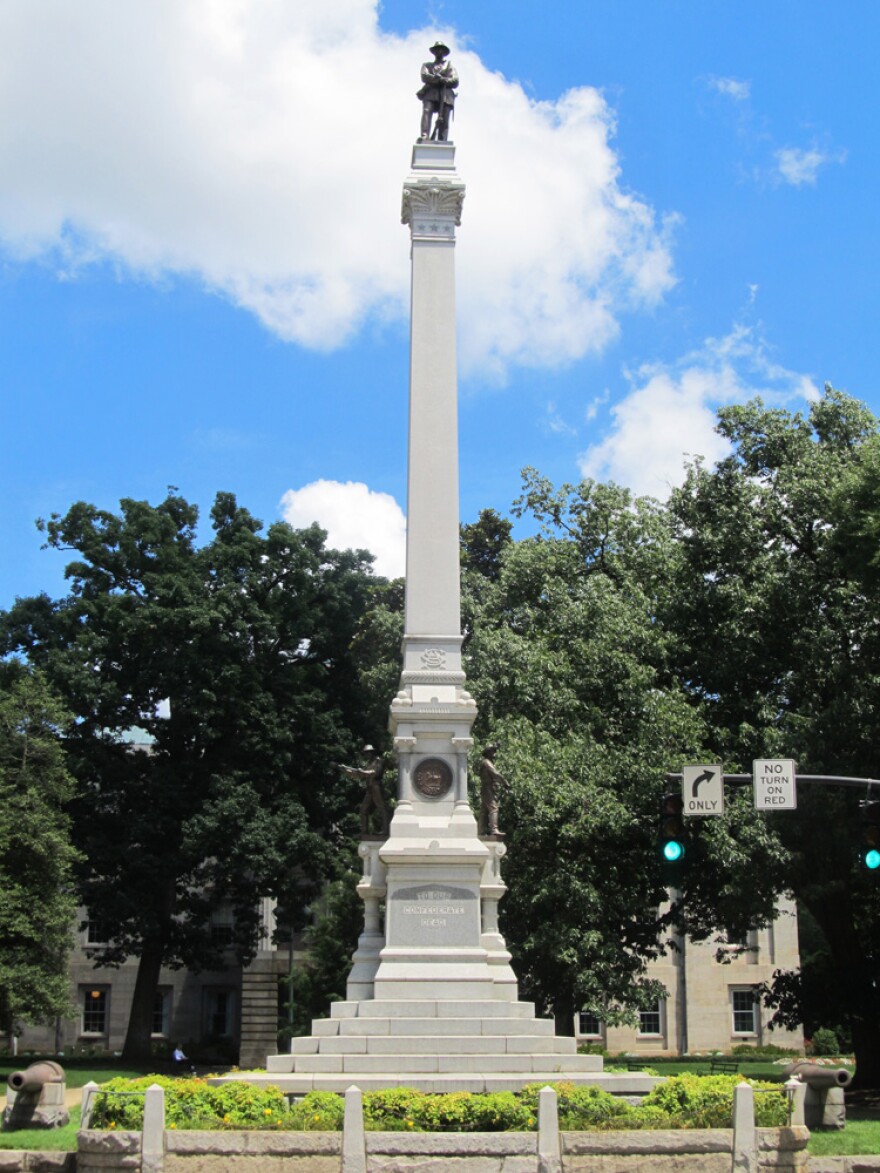The North Carolina Historical Commission voted 9-2 Wednesday against removing three Confederate monuments from the State Capitol Grounds.
By the same margin, the commission also voted to recommend erecting new signage that will add context to the monuments, including noting that slavery was a cause of the Civil War. The commission also is urging the state Department of Natural and Cultural Resources to plan and raise money for a monument recognizing the contributions of African Americans to the state's history.
In a third vote, the commission unanimously agreed that monuments at the capitol's Union Square are "an overrepresentation and over-memorialization" of the Confederacy and Civil War in state history.

The votes in Raleigh were in response to a request by Gov. Roy Cooper to move the monuments to Bentonville Battlefield, about 45 miles from the capital.
The majority of commission members said a 2015 state law prevents them from moving monuments. The law says the commission can approve relocations only if monuments are moved to an equally prominent location.
In a statement after the vote, Gov. Cooper said:
"It is time for North Carolina to realize that we can document and learn from our history without idolizing painful symbols. The General Assembly needs to change its 2015 law so our state and its people have a better path to remove or relocate these monuments safely, and I urge those who object to the monuments to call on their legislators to change the law and support legislative candidates who want to move our state forward."

The governor also reiterated his concern about Monday’s violent toppling of "Silent Sam," another Confederate monument on the UNC Chapel Hill campus. But he said, "The actions that toppled 'Silent Sam' bear witness to the strong feelings many North Carolinians have about Confederate monuments.”
N.C. Senate leader Phil Berger welcomed the vote.
“I appreciate that this committee followed the law and listened to the overwhelming majority of public comments from North Carolinians saying monuments on the state Capitol Grounds are part of our state’s history and should remain where they are,” Berger said in a statement.
Berger also said he agrees with the commission’s request for new signage that adds historical context to the monuments. And he said he supports the idea of a monument to African Americans who were enslaved.
NARROW COMMITTEE VOTE
The full commission votes came after a one-hour meeting of a study committee, which voted 3-2 against removal.
Commission member and Civil War historian Chris Fonvielle was among those who argued against moving the monuments.
"The past is often good, but sometimes bad and ugly," he said. "We cannot alter or change history, or right past wrongs and injustices by attempting to erase it or to topple or relocate its symbols."

Commission members Noah Reynolds and Valerie Johnson were the lone votes in favor of removal. During the study committee meeting before the full commission met, Reynolds said Union Square on the statehouse grounds is "frozen in time" by state laws that have limited the erection of new monuments.
"I believe four and one half monuments dedicated in part or in whole to the Civil War or the Confederacy is an overrepresentation of this theme," he said, adding that there were 14 total monuments at Union Square.
NO ACTION ON SILENT SAM
Wednesday's historical commission meeting came two days after protesters pulled down "Silent Sam" at UNC Chapel Hill campus. The commission took no action on seven petitions from citizens to remove that statue. The commission's lawyer said any petition to remove "Silent Sam" would have to come from UNC Chapel Hill officials.
The university did not submit a petition, a fact noted by commission member Valerie Johnson.
"Those bodies that need to consider these petitions from their constituents need to take the petitions seriously and hear what the concerns are from their constituencies and so take action as appropriate," Johnson said.


